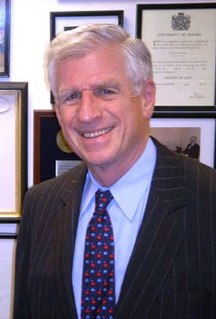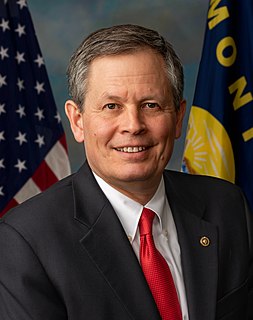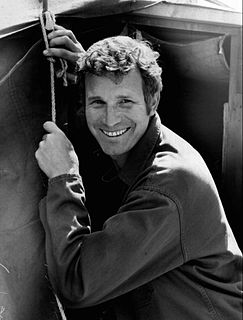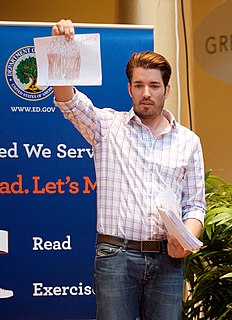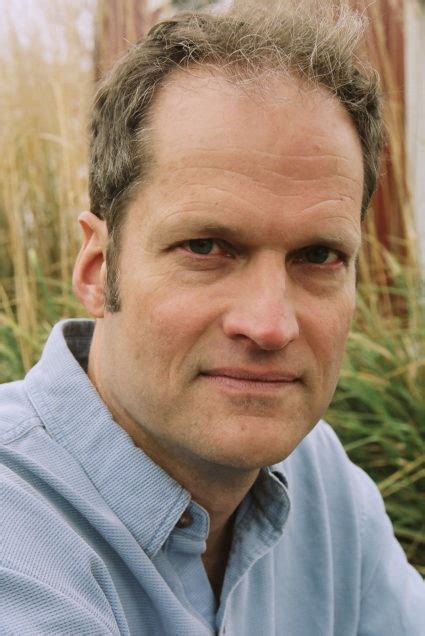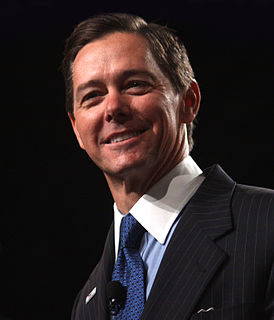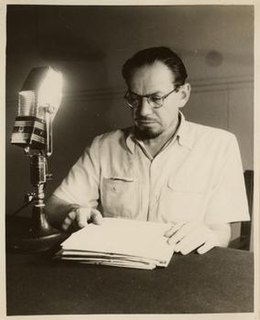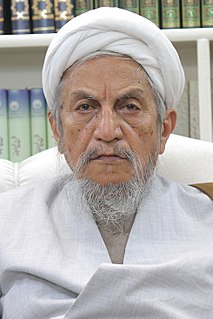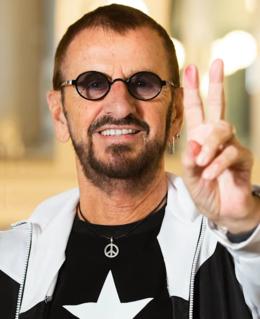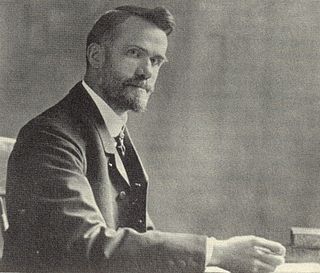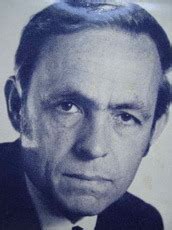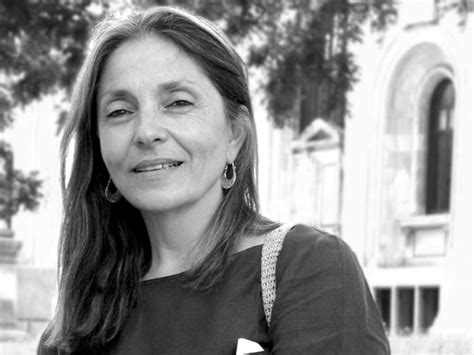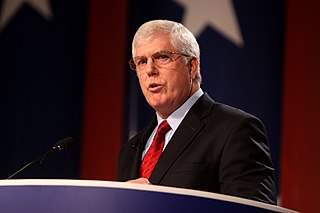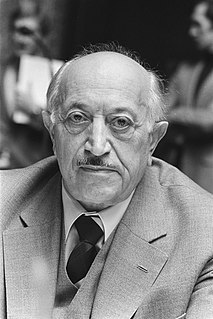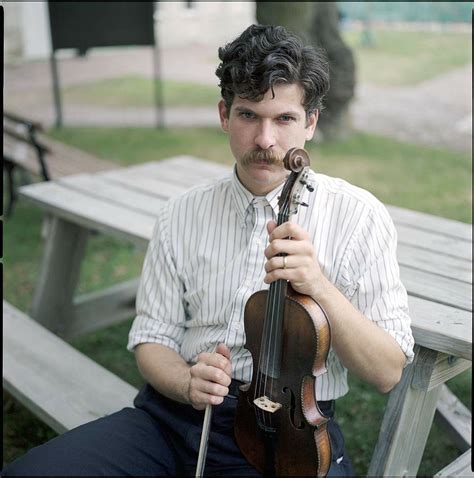Top 1200 Religious History Quotes & Sayings - Page 10
Explore popular Religious History quotes.
Last updated on December 24, 2024.
I say that creeds, dogmas, and theologies are inventions of the mind. It is the nature of the mind to make sense out of experience, to reduce the conglomerates of experience to units of comprehension which we call principles, or ideologies, or concepts. Religious experience is dynamic, fluid, effervescent, yeasty. But the mind can't handle these so it has to imprison religious experience in some way, get it bottled up. Then, when the experience quiets down, the mind draws a bead on it and extracts concepts, notions, dogmas, so that religious experience can make sense to the mind.
We take it for granted that Jesus was not interested in political life: his mission was purely religious. Indeed we have witnessed . . . the 'iconization' of the life of Jesus: 'This is a Jesus of hieratic, stereotyped gestures, all representing theological themes. In this way, the life of Jesus is no longer a human life, submerged in history, but a theological life -- an icon.
Math . . . music .. . starry nights . . . These are secular ways of achieving transcendence, of feeling lifted into a grand perspective. It's a sense of being awed by existence that almost obliterates the self. Religious people think of it as an essentially religious experience but it's not. It's an essentially human experience.
The beauty of religious mania is that it has the power to explain everything. Once God (or Satan) is accepted as the first cause of everything which happens in the mortal world, nothing is left to chance ... or change. Once such incantatory phrases as "we see now through a glass darkly" and "mysterious are the ways". He chooses His wonders to perform" are mastered, logic can be happily tossed out the window". Religious mania is one of the few infallible ways of responding to the world's vagaries, because it totally eliminates pure accident. To the true religious maniac, it's all on purpose.
If you look back at history or you look at any place in the world where religious groups or ethnic groups or racial groups or political groups are killing each other, or families have been feuding for years and years, you can see - because you're not particularly invested in that particular argument - that there will never be peace until somebody softens what is rigid in their heart.
That is the kind of America in which I believe. And it represents the kind of Presidency in which I believe - a great office that must neither be humbled by making it the instrument of any one religious group nor tarnished by arbitrarily withholding its occupancy from the members of any one religious group. I believe in a President whose religious views are his own private affair, neither imposed by him upon the Nation or imposed by the Nation upon him as a condition to holding that office.
With each passing year, people of faith grow increasingly distressed by the hostility of public institutions toward religious expression. We have witnessed the steady erosion of the time-honored rights of religious Americans - both as individuals and as communities - to practice what they believe in the public square.
The Eucharist is the full realization of the worship which humanity owes to God, and it cannot be compared to any other religious experience.... The risen Lord ... calls the faithful together to give them the light of His Word and the nourishment of His Body as the perennial sacramental wellspring of redemption. The grace flowing from this wellspring renews mankind, life, and history.
The religious urge in man is not a mere passing phase in the history of his spiritual development, but the ultimate source of all his ethical thought and all his concepts of morality; not the outcome of primitive credulity which a more "enlightened" age could outgrow, but the only answer to a real, basic need of man at all times and in all environments. In another word, it is an instinct.
I never intended to be a historian of religion. My aim was to become a professor of English Literature in a university, but I had a series of absolute career disasters and found myself making television programs about the nature of religion and about Christian history and started to discover about other religious traditions, and that was an absolute eye-opener for me.
For everything is history: What was said yesterday is history, what was said a minute ago is history. But, above all, one is led to misjudge the present, because only the study of historical development permits the weighing and evaluation of the interrelationships among the components of the present-day society.
The leaders of the Pahlavi regime, in an attempt to forestall the rising tide of the Islamic revolutionary movement, were hard at work to cast doubt on the question of the Imam Khomeini's position as a Marja'a (a top religious authority) and in this way, undermine public faith in his academic, political and religious competence.
I'm not the creative one. I know that. If Rory Storm hadn't come along... and then The Beatles... I would have continued running around in teddyboy gangs. Today, well... I'd probably be a laborer. I'm glad I'm not, of course. It'll be nice to be part of history... some sort of history anyway. What I'd like to be is in school history books and be read by kids.
Let me say that I don't see any conflict between science and religion. I go to church as many other scientists do. I share with most religious people a sense of mystery and wonder at the universe and I want to participate in religious ritual and practices because they're something that all humans can share.
What initially attracted me to The Seventh Seal was that it had values and characteristics which I was familiar with in other art forms, most notably, the European novel and certain forms on English drama, and indeed, in relation to my rather academic interest in history -- not "history" in the normal sense, but history as a form of entertainment . It might be a very unfashionable view but I believe that history is an amazing bank or reserve area of plots, characterisations, extraordinary events, etc.
We have evidence all around us in our daily analytic practice and in contemporary world history that this earth-shaking archetypal event is taking place here and now. It has already started. It is manifesting itself in international relations; in the breakdown of the social structures of Western civilization; in political, ethnic, and religious groupings; as well as within the psyches of individuals- the momentous event of the coming of the self into conscious realization.
The country and culture commonly known as "America" had had a badly split personality all through its history. Its overt laws were almost always puritanical for a people whose covert behavior tended to be Rabelaisian; its major religions were all Apollonian in varying degrees---its religious revivals were often hysterical in a fashion almost Dionysian.
[Pope Francis] most recent trip was to Sweden, where he commemorated the 500th anniversary of the Protestant Reformation. That had triggered one of the biggest splits in Christianity and decades of religious wars. He went so far as to praise Luther, who was once considered a heretic in the church, as a great reformer. So what he's been doing with other Christian churches is trying to heal past wounds and work together toward a shared view of their history.
The American people need no course in philosophy or political science or church history to know that God should not be made into a celestial party chairman. To most of us, the manipulative invoking of religion to advance a politician or a party is frightening and divisive. The American people will tolerate religious leaders taking positions for or against candidates.
It is my hope that inter-religious and ecumenical cooperation will demonstrate that men and women do not have to forsake their identity, whether ethnic or religious, in order to live in harmony with their brothers and sisters. If we are honest in presenting our convictions, we will be able to see more clearly what we hold in common.
My visual landscape as a child was the inside of a lot of these old churches. And the Baroque drama of the things was what I was first engaging with artwise. I'm much more attracted to the aesthetic of religious iconography than the actual religious side. The passion and the blood and the violence and the gaudy side of it I find really fascinating.


